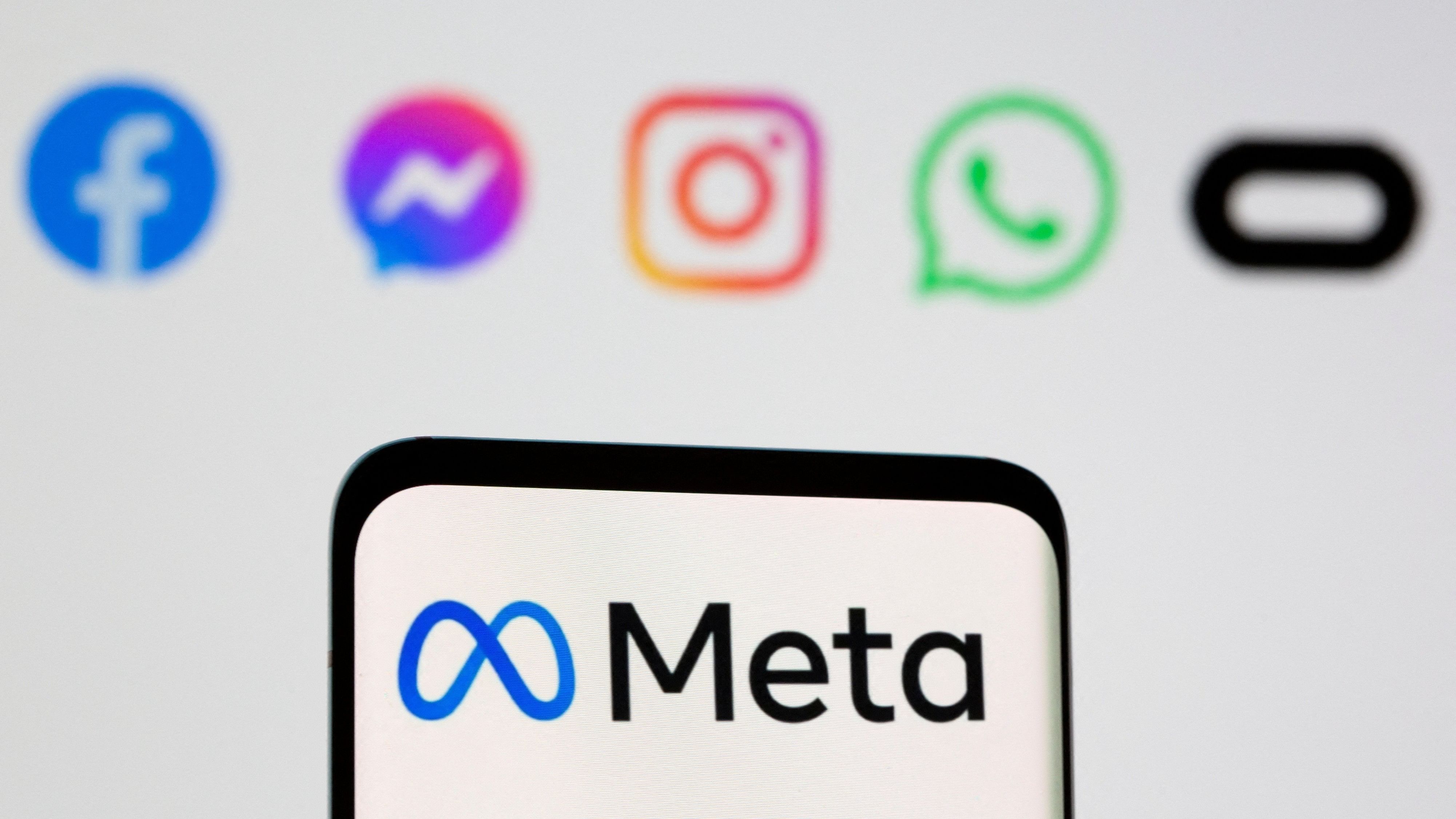
Meta logo along with Instagram and other social media app logos seen in the background.
Credit: Reuters File Photo
By Tama Leaver for The Conversation
Sussex: Meta’s Instagram and Threads apps are “slowly” rolling out a change that will no longer recommend political content by default. The company defines political content broadly as being “potentially related to things like laws, elections, or social topics”.
Users who follow accounts that post political content will still see such content in the normal, algorithmically sorted ways. But by default, users will not see any political content in their feeds, stories or other places where new content is recommended to them.
For users who want political recommendations to remain, Instagram has a new setting where users can turn it back on, making this an “opt-in” feature.
This change not only signals Meta’s retreat from politics and news more broadly, but also challenges any sense of these platforms being good for democracy at all. It’s also likely to have a chilling effect, stopping content creators from engaging politically altogether.
Meta has long had a problem with politics, but that wasn’t always the case.
In 2008 and 2012, political campaigning embraced social media, and Facebook was seen as especially important in Barack Obama’s success. The Arab Spring was painted as a social-media-led “Facebook Revolution”, although Facebook’s role in these events was widely overstated. However, since then the spectre of political manipulation in the wake of the 2018 Cambridge Analytica scandal has soured social media users toward politics on platforms.
Increasingly polarised politics, vastly increased mis- and disinformation online, and Donald Trump’s preference for social media over policy, or truth, have all taken a toll. In that context, Meta has already been reducing political content recommendations on their main Facebook platform since 2021.
Instagram and Threads hadn’t been limited in the same way, but also ran into problems. Most recently, the Human Rights Watch accused Instagram in December last year of systematically censoring pro-Palestinian content.
With the new content recommendation change, Meta’s response to that accusation today would likely be that it is applying its political content policies consistently.
Notably, many Australians, especially in younger age groups, find news on Instagram and other social media platforms. Sometimes they are specifically seeking out news, but often not.
Not all news is political. But now, on Instagram by default no news recommendations will be political. The serendipity of discovering political stories that motivate people to think or act will be lost.
Combined with Meta recently stating they will no longer pay to support the Australian news and journalism shared on their platforms, it’s fair to say Meta is seeking to be as apolitical as possible.
With Elon Musk’s disastrous Twitter rebranding to X, and TikTok facing the possibility of being banned altogether in the United States, Meta appears as the most stable of the big social media giants.
But with Meta positioning Threads as a potential new town square while Twitter/X burns down, it’s hard to see what a town square looks like without politics.
The lack of political news, combined with a lack of any news on Facebook, may well mean young people see even less news than before, and have less chance to engage politically.
In a Threads discussion, Instagram Head Adam Mosseri made the platform’s position clear: Politics and hard news are important, I don’t want to imply otherwise. But my take is, from a platform’s perspective, any incremental engagement or revenue they might drive is not at all worth the scrutiny, negativity (let’s be honest), or integrity risks that come along with them.
Like for Facebook, for Instagram and Threads politics is just too hard. The political process and democracy can be pretty hard, but it’s now clear that’s not Meta’s problem.
Instagram’s announcement also reminded content creators their accounts may no longer be recommended due to posting political content.
If political posts were preventing recommendation, creators could see the exact posts and choose to remove them. Content creators live or die by the platform’s recommendations, so the implication is clear: avoid politics.
Creators already spend considerable time trying to interpret what content platforms prefer, building algorithmic folklore about which posts do best.
While that folklore is sometimes flawed, Meta couldn’t be clearer on this one: political posts will prevent audience growth, and thus make an already precarious living harder. That’s the definition of a political chilling effect.
For the audiences who turn to creators because they are perceived to be relatable and authentic, the absence of political posts or positions will likely stifle political issues, discussion and thus ultimately democracy.
For Instagram and Threads users who want these platforms to still share political content recommendations, follow these steps: go to your Instagram profile and click the three lines to access your settings.
click on Suggested Content (or Content Preferences for some).
click on Political content, and then select “Don’t limit political content from people that you don’t follow”.
(Tama Leaver is a Professor of Internet Studies, Curtin University)